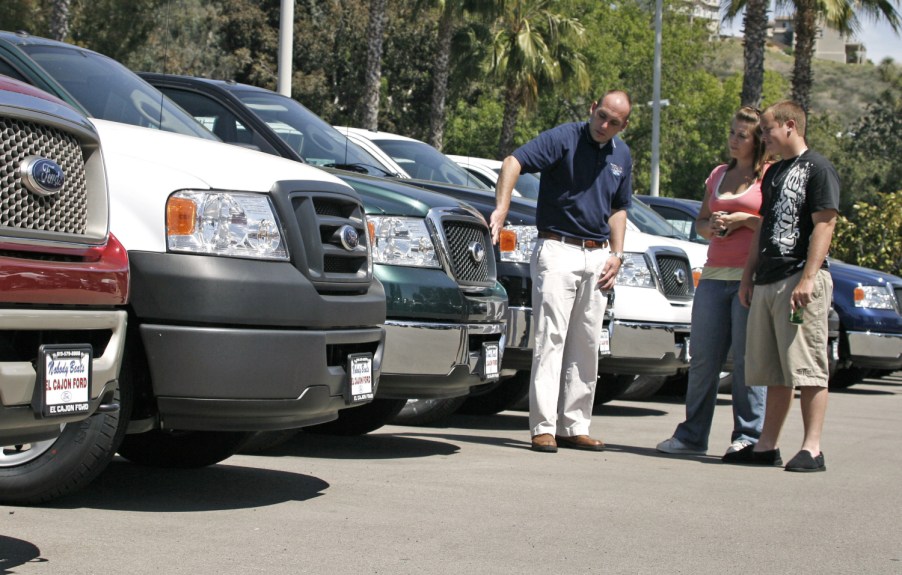
Buying a Used Car in 2021 Could Be a Bad Idea
Since the pandemic hit last year, dealers have been changing the way they do business in order to make the car sales process easier and safer for their customers. This means that they’re doing things like contactless delivery of the vehicle and even signing contracts online. However, if you’re shopping for a used car, then you could be paying a much higher price in 2021.
Car dealers are shifting to become pandemic-proof
In some ways, buying a used car can be much trickier than buying a new one. When you buy a new car, you can get the best deal by shopping around and negotiating the price a little before purchase. But when you buy a used car from a dealership, you have to know what the market is for that particular car and give them a good reason why they should discount the car.
However, in 2021, many dealers are looking to maintain their profit margins, especially on used cars, as much as possible. “Everyone is trying to become pandemic-proof,” says Ari Janessian, an auto broker for Boston Automotive Consulting. “Used car prices give dealers a major opportunity for profit and they are very profitable for dealers.”
What he is referring to is that many used car and franchise dealers will either buy their used cars at auction for a low amount or take them in on trade for low amounts, and then sell them a marked-up rate. And since many buyers are choosing to deal with dealers that offer contactless buying, much like Carvana and Vroom, many dealers are hesitant on negotiating and discounting their used cars, thereby narrowing their profit margins.
Used car loans have higher interest rates
In addition to standing their ground when it comes to the pricing of their used cars, dealers can make an additional profit by marking up the interest rate when you apply for financing through them. Used auto loans typically have a higher rate from the get-go, so dealers can capitalize on customers that are none the wiser.
“The used car business is profitable not just in the markup of the used car price but also in the markup of the interest rate,” Janessian said. “The markup on those rates can be substantial.”
This markup is called the “finance reserve,” and most banks will only allow dealers to mark up the rate by up to 2.5%, however, others might not have such a limit. That means that you can expect a higher interest rate when applying for a loan through a dealer.
It’s unfair, but it happens and you should always ask for the “buy rate,” which is the original rate they got from the lender. Or you can always find your own financing first through your personal bank or credit union.

Extended warranties add to dealer profits as well
As if marking up the used car’s pricing and financing rate wasn’t enough, dealers will also offer you an extended warranty on the car that you’re buying. The general reasoning for the extended warranty is that many used cars, unlike new cars, are out of warranty, so the dealer can potentially sell you one and make more money on their end.
And although extended warranties could prove to be valuable should anything catastrophic happen to your new-to-you car, they typically cost a lot and are usually unused by the time they expire.
According to Consumer Reports, many car owners typically pay more for coverage than they get back in direct benefits. Instead of buying a warranty for the used car, you could be better off saving the money that you would have spent on the warranty and use it for any emergency repairs later down the road.

Should you hold off on buying a used car?
While the marked-up pricing and interest rates can easily scare anyone away from buying a used car in 2021, we would say that it’s OK to buy a car, but just do your research first.
If you find a car that you like, then you can always check out CarGurus or Edmunds to see the true market pricing for that car and see if you can possibly get a better deal for it. And try to find financing through your local bank or credit union so that you don’t need to go through the dealer.



